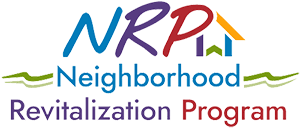Blood Drive at Washington Housing Authority 7/2
Every drop counts. Donate blood.
*In the Community Room*
809 Pennsylvania Ave.
Tuesday, July 2, 2024
10:00 am to 2:00 pm
Please visit RedCrossBlood.org and enter: WHA to schedule an appointment.
Get a NEW Red Cross umbrella when you come to give blood July 1 to July 14, while supplies last!
Click here to be directed to RapidPass.
Click here to schedule an appointment.
RapidPass
Complete your pre-donation and healthy history questionnaire from your mobile device using RapidPass.
Expedite your donation!
Use your mobile device or a donor tablet to complete your RapidPass. Be sure to screenshot or email your RapidPass to yourself and have it ready to present to staff before exiting healthy history.
Did you know?
On the day of your appointment, you can start the donation process before leaving home using the Blood Donor App or by visiting RedCrossBlood.org/rapidpass.
You can save up to 15 minutes!
Share Your Race During Health History Today
You might be a special match for a patient in need!
Blood give to patients with rare blood types of conditions like sickle cell disease must be matched closely to avoid complications.
A patient is more likely to find a compatible blood match from a donor of the same race or a similar ethnicity.
You may be familiar with A, B, AB and O blood types. But sometimes a patient needs and even closer match than those main blood types.
Checking your race lets the American Red Cross laboratories know that they should conduct additional screenings on your blood donation, including sickle cell trait screening.
Screenings determine if you're a match to help a patient with sickle cell disease or a rare blood type.
By indicating your race when you donate, you help the Red Cross best meet the needs of patients of all backgrounds.
What are antigens?
Red blood cells carry markers called antigens on their surface that determine one's blood type, the majority being one of the following categories: A, B, AB and O. There are more than 600 known antigens, and some are unique to specific racial and ethnic groups.


